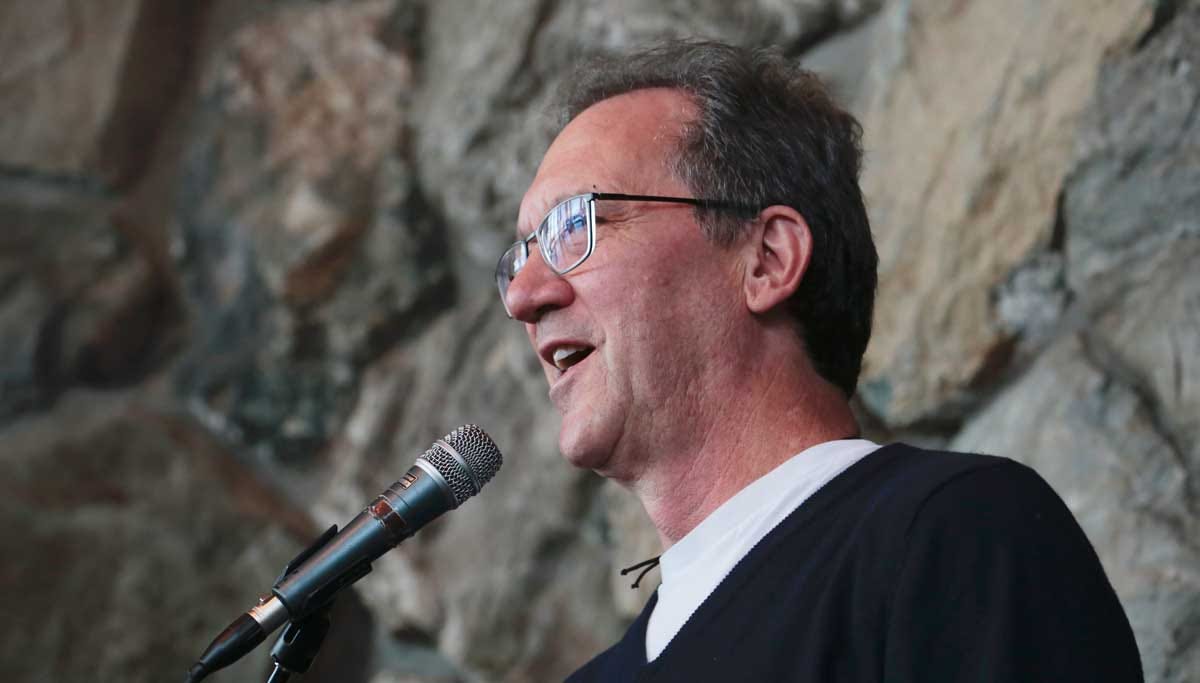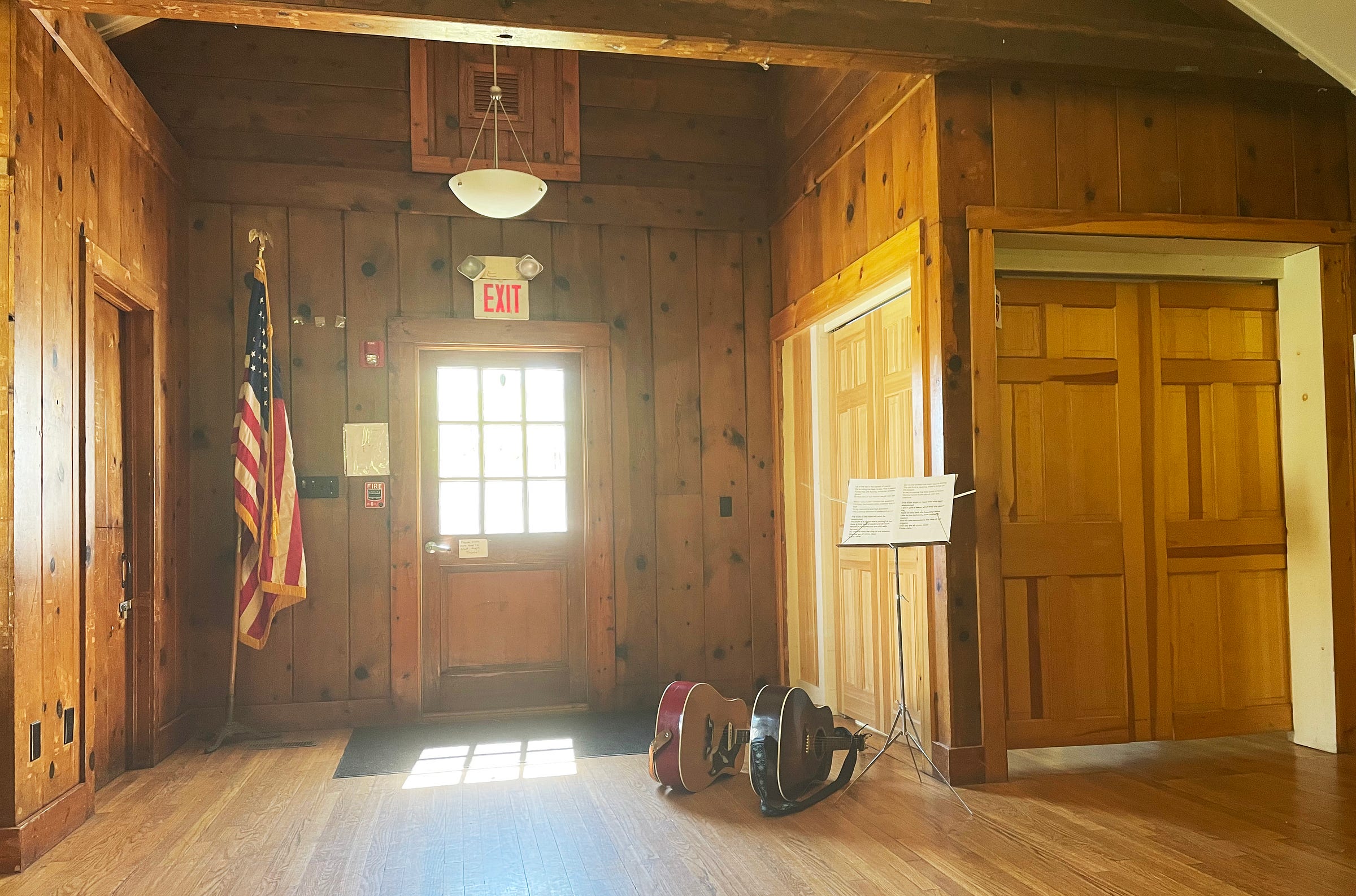We need a different kind of meeting: direct participation, not lecture and discussion.
The day after WHO declared the 'pandemic' over, our community was treated to an in-person podcast by Dr. Tom Cowan. But we need a different kind of meeting. We need direct involvement.
Germ theory is filler, a false set of answers to a wide diversity of mischaracterized problems. Each of those problems must be addressed meaningfully and honestly if there is to be any progress on health and wellness, or on the political issues surrounding germ theory.
Dear Friend and Reader:
On Friday, May 5, the World Health Organization (WHO) declared an end to what it claimed 1,150 days earlier was a global pandemic. It happened that the next day, Dr. Tom Cowan appeared at a meeting a few miles from where I live, at the Marbletown Community Center in Ulster County, New York.
About 50 people got themselves there, filling the room. Rebel psychiatrist Dr. Kelly Brogan, another internationally-known presenter, was also there, and she was a big audience draw for an admittedly small group; but it was pretty good for out in the country.
This was the first community gathering in upstate New York specifically related to “pandemic” response since an event in Poughkeepsie Dec. 4, 2021 — quite a gap for a fairly large group of people getting together for a specific purpose.
New York City was the symbol of the “covid” crisis in 2020, presented to the world as the epicenter of death and devastation. Upstate New York has in many ways been the seat of the resistance, with many of the most effective presenters originating here.
Another Discussion of Viruses
Contrary to the advertising — which said the meeting would be about pending legislation. But the turned into a lengthy lecture by Tom Cowan and some discussion on the existence of viruses. Cowan has been highly influential and helpful since his surprise video debut on March 12, 2020 (coincidentally, the same day the WHO claimed a global pandemic), with his off-the-cuff discussion of viruses going viral.
However, everyone in the room had seen many of those presentations — even dozens or hundreds of them. Yet it was clear from the audience questions that — all these months and years later — many people don’t really grasp the issues surrounding the known problems with virus existence, and its political and economic implications.
Most have a lot of other concerns, and other problems on their minds. The digital age has come with the most rampant de-skilling of people in history, including the skill of human connection. Here along the information superhighway, we are mostly eating alone at Taco Bell.
Yet after investing years of dedicated work, many have something to offer their neighbors. What we needed was a gathering with the opportunity to exchange skills, as well as plenty of time to mingle with other participants and do some real community networking. At less than $50 an hour, it was feasible to keep the room for an extra hour or two to fulfill that essential purpose. That did not happen.
At lunch afterward, the organizer (for whom I have done excellent work in the past) was tepid when I proposed a participation workshop on research and investigation for citizen journalists and activists — one of the top two skills we urgently need. (The other is how to handle in-person communication as an educator or organizer.)

The major presenters and many of their followers know that germ theory is not about “medicine” but about business and government. Not everyone can relate.
The Fall of Germ Theory Raises More Questions than Answers
There is good progress being made on dismantling germ theory. The conversations are now focused, and the proofs are widely available. That was not true in 2019 or 2020 or even 2021. If there is a silver lining to “covid,” it’s that a fairly large number of people are now questioning the idea of a thing jumping from one person to another, making them sick.
And I agree with Dr. Cowan that it’s now or never for grounding this idea into society — that there is no actual data to support the germ concept, and the idea is only abused for marketing drugs and social control. But the change will not come just through lectures; it will come through experience, personal discovery, community organizing, and learning how to unlearn what is not true.
However, there is an essential piece missing with the end of germ theory discussion. It raises more questions than answers. We who teach must admit this much, if we want to be caring and provide genuine education, or even seem like we have a clue.
Germ theory is filler, a false set of answers to a wide diversity of mischaracterized problems. Now, each of those problems must be addressed individually — meaningfully and honestly — if there is to be any progress on health and wellness, and on the political issues surrounding germ theory.
The major presenters and many of their followers know that germ theory is not about “medicine” but about business and government. Not everyone can relate. To most, chicken pox, biosecurity zones, forced vaccines, and the stripping of parental rights have nothing in common. However, after 2020, we ought to admit that our lives are now governed by the claim of viruses.
If you’ve ever done it, you know that it takes will and focus even to eliminate one problem from one’s diet, like soy or gluten. For many, it’s just too much to manage.
The Challenge is How to Live
The challenge for people is not the theory but the practice: how to live in this world, which is one seemingly endless toxic insult. It’s about having meaningful answers to the question of childhood conditions.
The allegedly controversial “terrain theory” means taking care of yourself.
Most people do not have the kinds of food, air and water options that some few others have. Many cannot afford to eat “organic” and cannot grow their own food living in an apartment. They live busy urban or suburban lives; and they lack both information and context. Today, “cooking” for many young people means popping Hot Pockets into the microwave.
And if you’ve ever done it, you know that it takes a lot of will and focus even to eliminate one problem from one’s diet, like soy or gluten. For many it’s just too much to manage. And the “health food store” with some better potions [I meant options, but potions works] costs two or three times more than the regular supermarket.
We are past the point of needing only to convince people of the germ theory scam, around which society has been organized. We are responsible for not only for what we teach but also for the questions that it raises. A true approach must replace the false, and that is the real work.
And that’s going to take a heck of a lot more than proving that viruses don’t exist. That’s a critical issue, but it’s only the beginning.
Eric Coppolino is a journalist who has hit major home runs in his career. He deserves your support. Pay a few bucks and subscribe to his Substack. The man is fearless and makes your brain hum. In these times, you WANT your brain to hum.
— Jon Rappoport
"It took me a while but as of tonight I think I finally understand the gravity of East Palestine — thanks to the outstanding broadcasts and interviews Eric Coppolino has done.”
— Celia Farber
·







To be honest, when I was young, in the 50s/early 60s the word virus was interchangeable with "put on a jacket, it's cold outside and you'll catch pneumonia". I never thought a "virus" was a real thing, just a way of expressing certain conditions, it never had a real "cause-effect". It was more like a "bogeyman" mirage.
Today we have a different story. Today the "virus" (or germ theory) has become a mix of "modern science" and political ideology. More people now no there is no proof of this construct; likewise more people have come away after years of injections with a deeper belief in the "virus".
Here's my point, I don't think virology is alone as a pseudo-science. I would look to it' brother - bio-technology and genetic engineering. Virology is embedded in these endeavors.
I think these are the most dangerous emerging belief systems which is underway and needs to be addressed.
"The digital age has come with the most rampant de-skilling of people in history, including the skill of human connection." Such a perfect description, I will be sharing and of course giving you credit. Thanks, Eric!